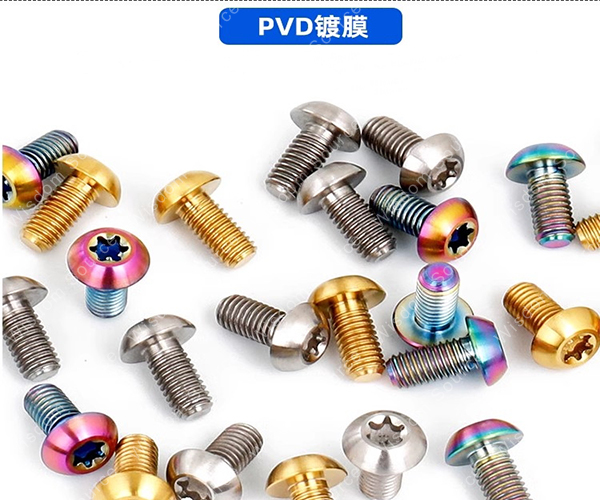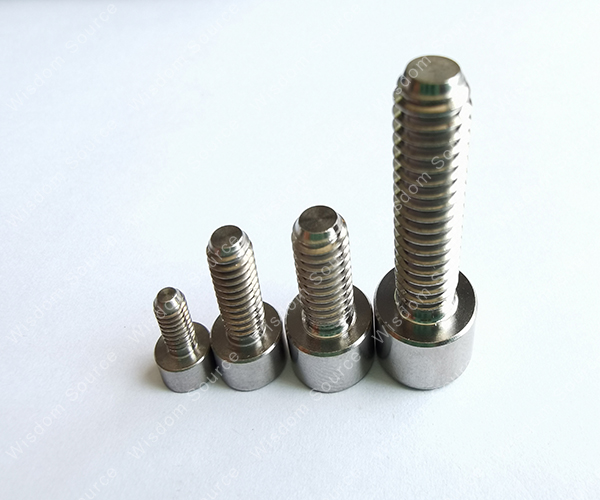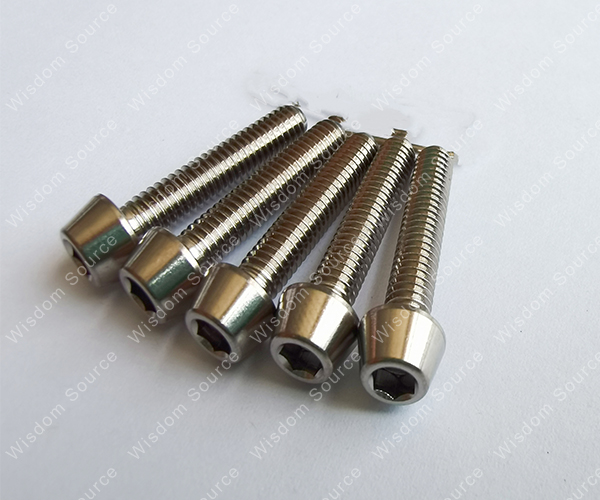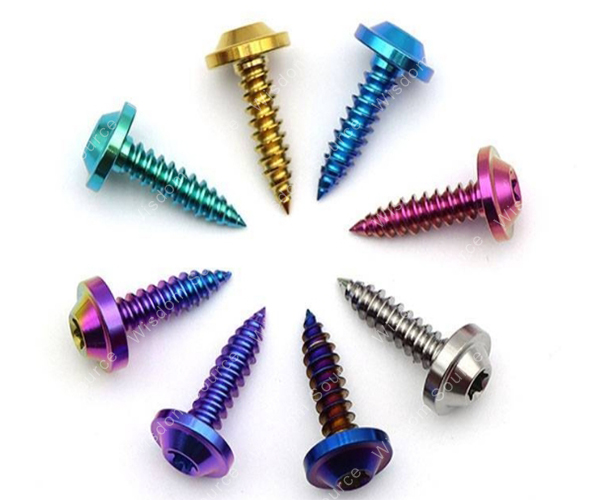Titanium Alloy Screws: Invisible Pillars For Precision Manufacturing Of Consumer Electronics
Titanium Alloy Screws: Invisible Pillars For Precision Manufacturing Of Consumer Electronics
When consumers queued up for Apple's new products, few people noticed the titanium alloy screws with a diameter of only a few millimeters inside the phone. These seemingly ordinary fasteners are actually key breakthroughs in the material upgrading of the consumer electronics industry-from the first use of titanium to replace traditional steel screws in Apple's 5th-generation models to the large-scale application of 44 titanium screws in the 6th-generation models, a silent material revolution is reshaping the standard of precision manufacturing. Titanium House has conducted a systematic combing for this purpose, which is specifically reflected in the following aspects:
1. Material Substitution: Cracking The Electromagnetic Dilemma Of Steel Screws
The steel screws widely used in traditional consumer electronics products have fatal defects: the ferromagnetism of steel causes the equipment to be susceptible to electromagnetic fields and produce secondary magnetization during long-term use.The measured data show that in the 5G communication environment, the signal attenuation rate of steel screw equipment is 12%-15% higher than that of titanium screw equipment. This gap is even more significant in the dense electromagnetic environment.
The physical properties of titanium alloy perfectly solve this problem:
1) Non-magnetic characteristics: Titanium maintains absolute zero permeability in the temperature range of -253℃ to 500℃, completely eliminating electromagnetic interference
2) Lightweight advantage: The density of 4.51g/cm3 is only 60% of steel, and the weight loss of a single M2 screw is 0.32 grams.
3) Strength guarantee: The tensile strength is 800-1100Mpa, which is 1.3-1.5 times that of 304 stainless steel.
4) Corrosion resistance: In 3.5% NaCl solution, the corrosion rate is 0.003mm, and the service life is 2.5 times that of steel screws.
After the Apple R&D team adopted titanium alloy screws for the first time in the 5th generation models, the measured signal stability of the device in the complex electromagnetic environment increased by 19%.This data directly promoted the comprehensive upgrade of the 6th generation models, and the amount of titanium screws used in a single device reached 44.

2. Precision Manufacturing: Breaking Through The Limit Of Millimeter-Level Processing
The manufacturing accuracy of titanium screws can be called the micro-engineering of modern industry.In order to meet the stringent requirements of consumer electronics for surface finish (Ra≤0.4µm) and dimensional tolerance (±0.03mm), the industry has achieved breakthroughs through three key technologies:
1) Material Pretreatment Technology: The vacuum self-consuming arc smelting (VAR) process is used to increase the density of titanium to 99.7%, and the oxygen content is controlled below 0.12% to ensure the processing stability from the raw material end.
2) Precision Machining Technology: the application of three-axis linkage CNC machine tools, combined with cemented carbide coated tools, to achieve coolant-free dry machining, reduce the impact of thermal deformation on accuracy
3) Quality Inspection System: A laser scanning and measuring system is introduced to perform full-dimensional inspection of each screw, with a defect recognition rate of 99.95% to ensure that each part meets the standards.
After continuous technological improvement, the overall yield of the industry has increased from 62% to 98.7%, and the daily production capacity has exceeded 450,000 pieces.The quality control standards show that the thread tolerance band is controlled at 6g level (±0.015mm), and the head height deviation does not exceed 0.008mm, which meets the requirements of the international ISO 898-1 standard.

3. Industrial Upgrading: a Virtuous Circle Driven By Technology
The market explosion of titanium screws has promoted the comprehensive upgrading of the industrial chain.Upstream raw material enterprises use magnesium thermal reduction method to produce titanium sponge, increasing the purity to 99.6%; mid-stream manufacturing enterprises are equipped with 200 CNC machining centers to achieve flexible production of multi-variety small batches; downstream testing institutions have passed CNAS certification laboratories, with salt spray test (96 hours), metallographic analysis and other 8 types of testing capabilities.
Cost analysis shows that through process optimization and scale effects, the manufacturing cost of a single titanium screw has been reduced to 2.1 times that of steel screws.The premium space brought about by its performance advantages is 2.8 times. At present, the industry's leading suppliers account for 40% of Apple's supply chain, with an annual supply of 180 million pcs, forming a virtuous circle of "technological breakthroughs-order growth-R&D reinvestment".

4. Application Expansion: Cross-Disciplinary Precision Revolution
The technical accumulation of titanium screws is extending to more high-end manufacturing fields:
1) Medical field: Titanium screws for orthopedic implants have a fatigue strength of 1200MPa, and their bio-compatibility is certified by GB/T 16886 standard, which can be used for long-term implantation in the human body.
2) Aerospace: Special titanium screws for satellites maintain a coefficient of thermal expansion of 0.003mm/℃ in the temperature change of -150℃ to 180℃ to adapt to extreme space environments
3) New Energy Vehicles: After the fixing screws of the battery pack are made of titanium alloy, the weight of the bicycle is reduced by 9kg, the battery life is increased by 2.2%, and the safety of the battery pack is improved at the same time.
The industry technology roadmap shows that the strength of the β-titanium alloy screws being developed will be increased to 1350Mpa, and the cost will be reduced by 25% through the powder metallurgy process, and it is expected to achieve large-scale application in the automotive field in 2026.

When consumers slide the mobile phone screen, 44 titanium alloy screws are silently supporting this technological revolution. From material substitution to precision manufacturing, from consumer electronics to high-end equipment, these parts with a diameter of only a few millimeters confirm the decisive role of materials science in industrial upgrading. With the rapid development of industries such as 5G communications and new energy vehicles, the precision manufacturing revolution represented by titanium alloy screws is redefining the quality standards of modern industry. This silent technological change will eventually promote the manufacturing industry to move towards higher precision and higher reliability.
